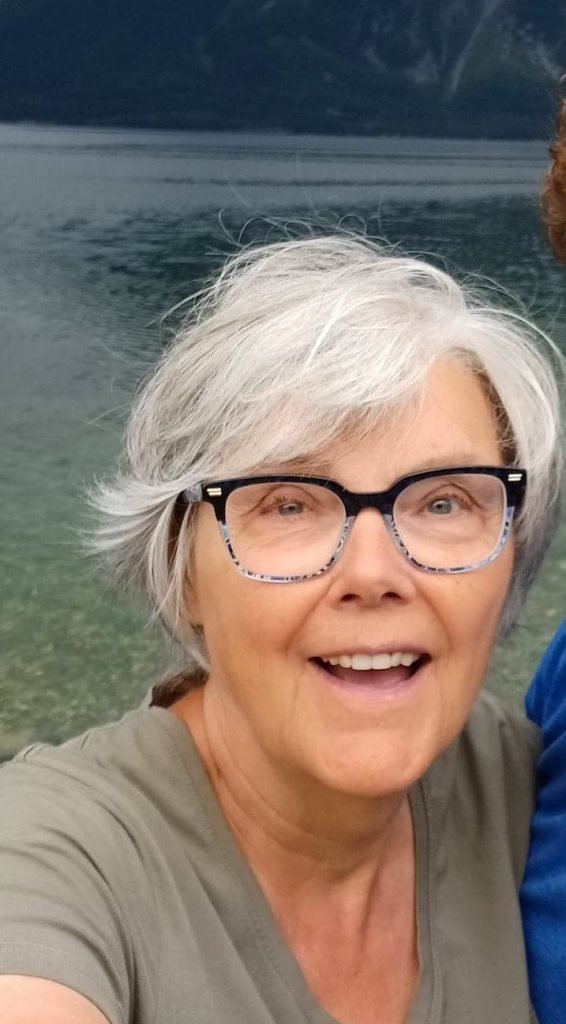Building Better Boards: A Conversation with Rhoda Reardon
If you’re part of an arts organization, you likely have a full plate - from planning productions to promotion, fundraising, hiring and training staff, and a myriad of other duties. It can be so overwhelming that planning where you want to go as an organization overall can take a backseat. But you don’t have to go it alone. A dependable board with a wide range of skills and expertise (in things like finance, law, HR, etc.) can help you plot out your future, and the most effective ways to get there, while acting as a sounding board and support system. And when you have board members who are interested and invested in your organization's work, that’s when the real magic happens. (Find out about the work we’re doing to match local arts organizations with potential board members thorough our Team Up With the Arts program.)
When Rhoda Reardon and her husband first visited the province, they quickly fell in love with the place - so much so that they’ve spent their past 11 summers here, on the West Coast in the small town of Cow Head - home of Theatre Newfoundland Labrador (TNL) and the Gros Morne Theatre Festival. The creative community is one of the things that attracted her to the area, says Reardon (who previously worked as an occupational therapist and later, in healthcare research and evaluation).
“I like living in a theatre town. I like the energy of being in a theatre town…some of the other part-time residents who I've met over the years, I think (it’s) part of what attracted them here. And that domino effect, when you have an arts organization that's rooted somewhere, takes a while to grow...it’s this other more subtle effect that happens over time as a community or an area starts to grow and flower around an arts organization that anchors it,” she says.
Upon retirement, Reardon decided to seek out organizations that meant something to her, to which she could dedicate some of her time. For the past six years she’s been involved with TNL and these days, chairs the fund development committee. (She’s also involved with the Gros Morne Co‑operating Association, a non-profit that supports the protection, preservation and interpretation of Gros Morne National Park’s heritage.)
"I get to to do what I want to do, in terms of donating my time and being involved here, but I also get to do it where I feel like I'm contributing something to this community, in this province that I adopted and that has come to mean so much to us,” she says.
"Professionally, I think that being involved with TNL has simply allowed me to continue exercising those skill sets that I developed - working with people, working on a team, setting goals.”
Reardon credits Business & Arts NL's ArtSupport NL program, which TNL participated in, for helping enhance her fundraising knowledge. The program provides local arts organizations with training, coaching and mentoring (through RBR Development Associates) to help them improve their fundraising processes and diversify their revenue.
"What's great about the model is that it isn't something that you try to do where you sort of compress learning into a point in time. It's recognizing that you really have to learn over time, and that you have to try and fail, try and fail,” Reardon says.
"And both coaches that we've had with RBR, and by extension with Business & Arts NL, have also become invested in us…they're meeting with you week over week and you're sitting down with these people...and you are connecting on a very personal level with these coaches, and they're connecting to you,” she adds.
“So what they're teaching us in terms of building a relationship with donors…that's exactly what they're demonstrating in terms of how they build a relationship with us. So it's a fantastic model.”
Speaking with Reardon about her involvement with TNL, her pride in the organization shines through, and she’s looking forward to using her skills to help it thrive. Diverse skill sets, she says, are a must for any board, "and sometimes when you go to build a board, you have to be really careful about that and say, 'What are we missing at this table? And what skill sets do we want to bring on?’” she notes.
“A good board member recognizes why they're there, and they're ready to show up and follow through,” Reardon says.
“You're there to make a contribution and you're there to work. And that means that you've got to read stuff that comes out, and you've got to respond in a timely manner; and that means you've got to take on commitments…and you've got to participate in meetings in a businesslike way,” she adds.
“You're going to be on a board because you believe in the organization and you're willing to put the work in.”
Read about other board member experiences here:
Building Better Boards: A Conversation with David Hood



